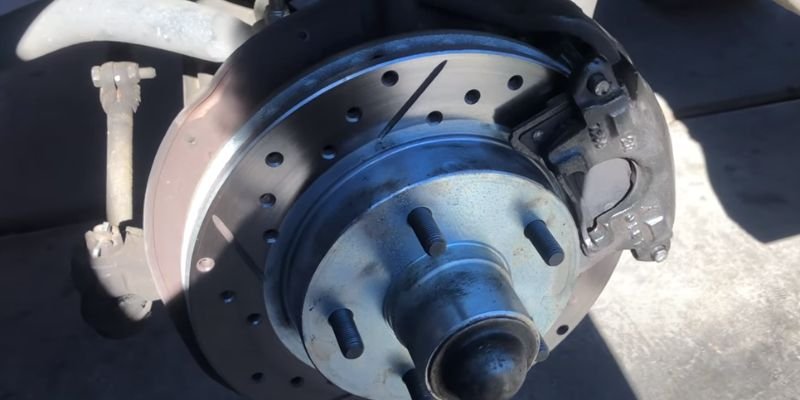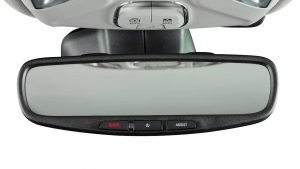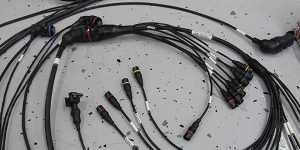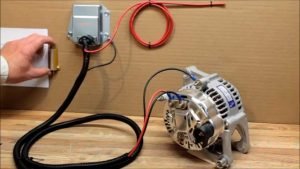An alternator is a device that generates electrical power by converting mechanical energy from an engine into electrical energy. It is an essential component of a vehicle’s charging system, which ensures that the battery is charged while the vehicle is running. There are two main types of alternators: one-wire and three-wire alternators.
In this blog post, we will explore the differences between one-wire and three-wire alternators, their functions, benefits, and limitations. We will also compare the two types of alternators and determine which is better. Finally, we will offer recommendations for choosing the right alternator for your vehicle.
Contents
One-Wire Alternator
A one-wire alternator, also known as a self-exciting alternator, has a single wire that connects directly to the battery. This wire provides the electrical connection and activates the alternator. The one-wire alternator is easy to install because it requires only a single wire to be connected to the battery.
The function of a one-wire alternator is to convert mechanical energy into electrical energy. As the engine rotates the alternator pulley, the rotor inside the alternator generates a magnetic field. The stator, which is a stationary component of the alternator, produces an electrical current as it moves through the magnetic field. This current is then regulated and sent to the battery to charge it.
One of the main benefits of a one-wire alternator is its simplicity. It has fewer wires and components than a three-wire alternator, making it easier to install and troubleshoot. Additionally, a one-wire alternator has a built-in voltage regulator, which eliminates the need for an external regulator.
However, one of the limitations of a one-wire alternator is that it may not produce enough charging current at low engine speeds. This can lead to insufficient battery charging, especially if the vehicle is idling for extended periods. Furthermore, the built-in voltage regulator may not be as effective as an external regulator in controlling the charging voltage.
In summary, a one-wire alternator is a simple and easy-to-install alternator that provides a direct connection to the battery. However, it may not produce enough charging current at low engine speeds and may have limitations in voltage regulation.
Three-Wire Alternator
A three-wire alternator, also known as an external voltage regulator alternator, has three wires: the output wire, the field wire, and the sense wire. The output wire is connected directly to the battery, while the field wire provides the alternator with the necessary magnetic field to produce electrical energy. The sense wire provides voltage feedback to the voltage regulator to ensure that the charging voltage remains constant.
The function of a three-wire alternator is similar to a one-wire alternator, which is to convert mechanical energy into electrical energy. The main difference is that the external voltage regulator controls the charging voltage and current, which provides more precise and consistent charging compared to a one-wire alternator.
One of the main benefits of a three-wire alternator is its ability to produce more charging current at low engine speeds. This is because the external voltage regulator can adjust the field current to increase the output voltage and current. Additionally, the external voltage regulator can protect the battery from overcharging, which can extend the battery’s lifespan.
However, a three-wire alternator is more complex than a one-wire alternator, which can make installation and troubleshooting more difficult. Additionally, an external voltage regulator is required, which adds to the cost of the alternator.
In summary, a three-wire alternator provides more precise and consistent charging than a one-wire alternator, and can produce more charging current at low engine speeds. However, it is more complex and requires an external voltage regulator, which can add to the cost and installation difficulty.
One-Wire Alternator vs Three-Wire Alternator
| Feature | One-Wire Alternator | Three-Wire Alternator |
| Number of wires | 1 | 3 |
| Installation | Easy | More complex |
| Troubleshooting | Easy | More complex |
| Charging current at low engine speeds | May be insufficient | Can be adjusted to increase output |
| Voltage regulation | Built-in regulator may not be as effective | External regulator provides more precise and consistent charging |
| Protection from overcharging | N/A | External regulator protects the battery |
| Cost | Less expensive | More expensive due to external regulator |
As shown in the table, a one-wire alternator is simpler and easier to install and troubleshoot, but it may not produce enough charging current at low engine speeds and the built-in voltage regulator may not be as effective as an external regulator. On the other hand, a three-wire alternator is more complex and requires an external regulator, but it provides more precise and consistent charging and can adjust the charging current to meet the vehicle’s needs.
When it comes to choosing between a one-wire alternator and a three-wire alternator, there are several factors to consider. Here are some of the main advantages and disadvantages of each type:
Advantages of One-Wire Alternator:
- Easy to install and troubleshoot
- Requires fewer wires and components
- Built-in voltage regulator eliminates the need for an external regulator
Disadvantages of One-Wire Alternator:
- May not produce enough charging current at low engine speeds
- Built-in voltage regulator may not be as effective as an external regulator
Advantages of Three-Wire Alternator:
- More precise and consistent charging voltage and current
- Can produce more charging current at low engine speeds
- External voltage regulator protects the battery from overcharging
Disadvantages of Three-Wire Alternator:
- More complex to install and troubleshoot
- Requires an external voltage regulator, which adds to the cost
So, which is better? It depends on your specific needs and preferences. If simplicity and ease of installation are important to you, then a one-wire alternator may be the best option. However, if you want more precise and consistent charging, or if your vehicle idles frequently or for extended periods, then a three-wire alternator may be the better choice.
In general, a three-wire alternator is a more reliable and efficient option, but it also requires more skill and knowledge to install and maintain. If you’re unsure which type of alternator is best for your vehicle, it’s always best to consult with a professional mechanic or electrician.
FAQ:
Q: What is the difference between a one-wire alternator and a three-wire alternator?
A: A one-wire alternator has a single wire that connects to the battery, while a three-wire alternator has three wires: the output wire, the field wire, and the sense wire. The main difference is that a three-wire alternator has an external voltage regulator that provides more precise and consistent charging than a built-in regulator on a one-wire alternator.
Q: Which type of alternator is easier to install?
A: A one-wire alternator is easier to install because it has fewer wires and components than a three-wire alternator.
Q: Can a one-wire alternator be converted to a three-wire alternator?
A: Yes, it is possible to convert a one-wire alternator to a three-wire alternator by adding an external voltage regulator and field wire.
Q: Which type of alternator is more efficient?
A: A three-wire alternator is generally more efficient because it provides more precise and consistent charging voltage and current, and can adjust the charging current to meet the vehicle’s needs.
Q: Can a three-wire alternator be used as a one-wire alternator?
A: Yes, it is possible to use a three-wire alternator as a one-wire alternator by connecting the output wire directly to the battery and ignoring the field and sense wires. However, this may not be as efficient as using a three-wire alternator with an external voltage regulator.
Q: Which type of alternator is better for off-road vehicles?
A: It depends on the specific vehicle and its electrical requirements. In general, a three-wire alternator may be a better choice for off-road vehicles because it can produce more charging current at low engine speeds and protect the battery from overcharging. However, a one-wire alternator may be sufficient for vehicles with low electrical loads.
Conclusion
Choosing between a one-wire alternator and a three-wire alternator ultimately comes down to your specific needs and preferences. A one-wire alternator is simple to install and troubleshoot, but may not produce enough charging current at low engine speeds, and its built-in voltage regulator may not be as effective as an external regulator. Meanwhile, a three-wire alternator provides more precise and consistent charging, can produce more charging current at low engine speeds, and protects the battery from overcharging, but it is more complex to install and requires an external regulator.
If you’re unsure which type of alternator is best for your vehicle, it’s best to consult with a professional mechanic or electrician who can help you make an informed decision based on your specific vehicle and needs.
Affiliate Disclosure: As an Amazon Associate, I earn from qualifying purchases made through links on this site.








